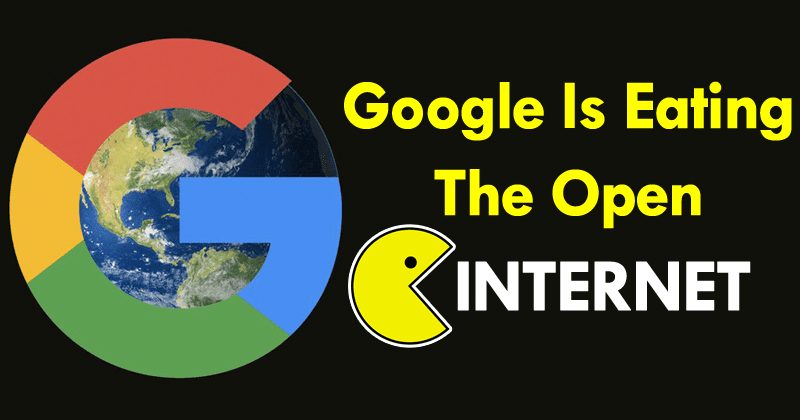Among all these headlights we have one that shines more than the others, of course, the tech giant Google. The famous internet searcher took you all over the free internet available and connected us with all the wonderful content that we could find. Well, it looks like this is going to change. As the tech giant Google intends to grow so much, that it does not have to leave its domain at any time. Among the AMP fast loading pages of the main news brands hosted in its domain, complete information pages are taken from external sites that do not require you to be visited, basic shopping functions incorporated into ads, YouTube and many other features, the universe of Google looks like an elaborate garden in an expansion. Among its expansion plans, we have the possible disappearance of URLs in mobile searches, which would improve loading times while creating a much cleaner interface. Google has always had this ambition. Former CEO of Google, Eric Schmidt, stated in 2005 that Google’s ideal is that, when performing a search, only a result is displayed and the response to the search, without having to click on any link. The company has made several moves in pursuit of this goal since then, but it seems that only since Facebook started to create its own closed platform, it has really put the batteries. The benefits of operating in a structured environment are obvious. The free web tends to be chaotic and disorderly; instead, these gardens allow companies to control, track and monetize every part of their service experience. What sets Google apart from other domains is that it operates on the web on a large scale. The core of its business is built around organizing and indexing the Internet as it expands. Their networks run ads on thousands of different sites, reaping billions of dollars in the process. The company justifies this new crusade as a boon to consumers, who want fast loading pages without ads and we do not have to see search results that do not interest them. But this feature does not come without a cost. Brian Warner, founder, and CEO of CelebrityWorthNet.com, understands, perhaps more than anyone, the power of building the walls of Google. Warner began to realize that the content of his website began to appear directly in the results of searches in 2012. Two years later, he received an email from Google asking him to file his data, a proposal he would reject. Two years after that, Google did that anyway and was devastating to their website. “Our traffic was under 85% compared to a year or two ago,” Warner said to illustrate Google’s ability to handle the influx of users on the web. But there is a big hole in your long-term plan. Google ultimately relies on referral sites like Wikipedia, IMDB, Fandango and so on to compile and update the information it uses. If you choose to keep choking these websites, what incentive will they have all the new ones coming?
— Julie F Bacchini (@NeptuneMoon) May 15, 2017 Let’s remind you, Google is not a perfect bug-free machine. The information that the company packs on the pages is not always the most accurate due to the quality of the site or poorly classified data. On Twitter, we can find several complaints about the service provided by the search engine. There are many complaints in which the “salient features” are outdated or simply misleading.
— Simon Wheatley (@simonwheatley) May 19, 2017 All of these work fall under what Google has called the “Knowledge Graph,” a program that was built in 2012 to increase results on pages with aggregated content. The system was modeled so that it can focus more on words, on complex concepts to understand the text. The search engine is constantly accessing new data all over the web.
With all these tools and strategies, that the tech giant Google intends to continue to embrace more and more of the free Internet. It will have to see how it is getting and the problems that it entails. So, what do you think about this analysis? Simply share your views and thoughts in the comment section below.
Δ


